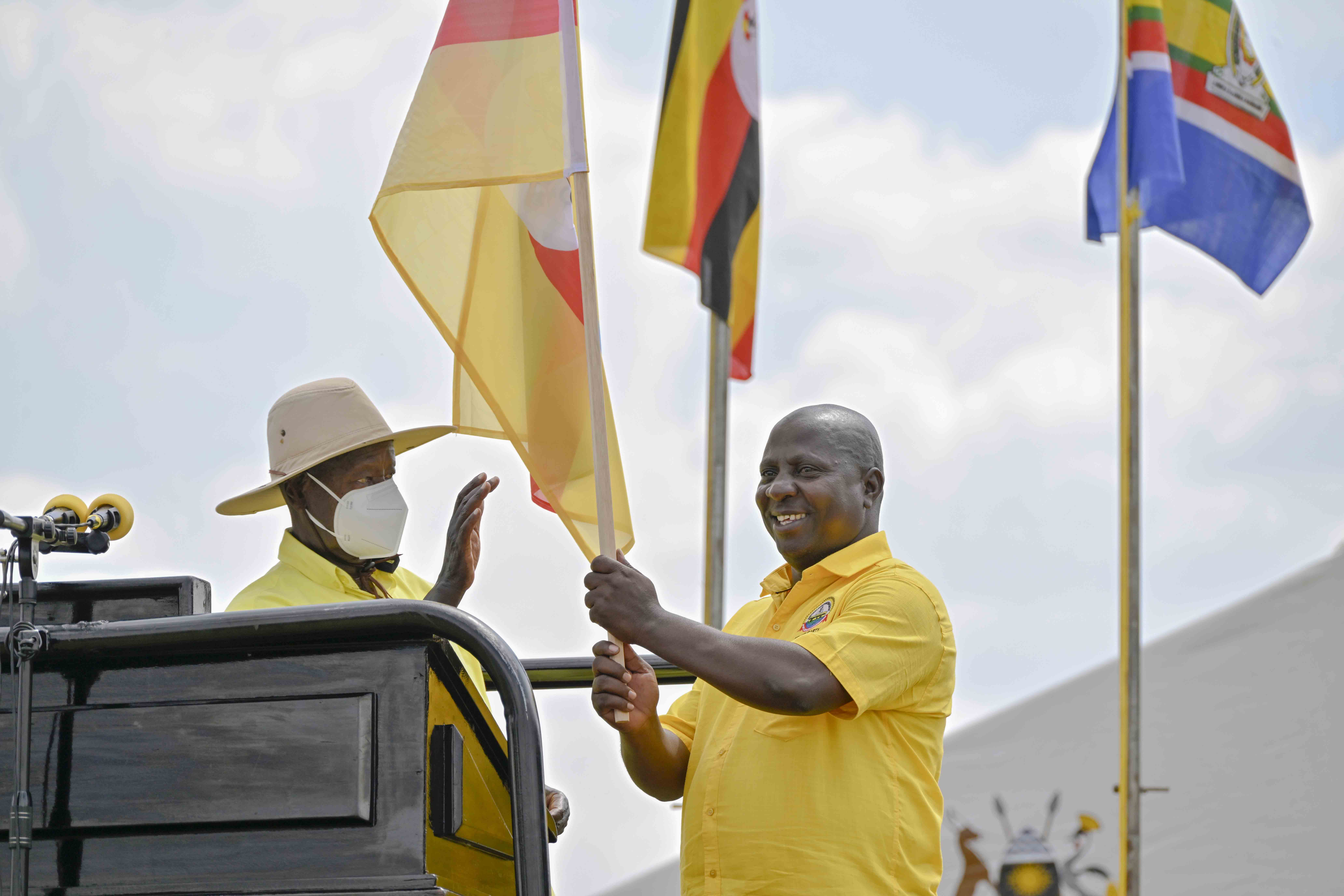
PRESIDENT MUSEVENI CALLS FOR STRICT ENFORCEMENT OF ONE GOV’T PRIMARY SCHOOL PER PARISH POLICY
The President directs Presidency Minister on Lakwena victims President Yoweri Kaguta Museveni has reiterated the National Resistance Movement (NRM)’s key contributions to Uganda's socio-economic transformation. “We are here with other leaders to present to you the NRM manifesto for 2026-2031 and in that manifesto we point out to you that in the last 40 years, NRM has made seven (7) contributions to Uganda,” he said. The President, who was accompanied by the First Lady and Minister of Education and Sports, Maama Janet Museveni, made the remarks today while addressing a campaign rally at Luuka district headquarters. He said the first contribution is peace. “You heard people talking about the Lakwena victims that meant war. You heard that when I was here, much of the time I was in fighting but now all those wars ended. And that's NRM’s first contribution to Uganda,” he noted. The President also directed the Minister for the Presidency to work with the Attorney General to solve the gratuity issue of the Lakwena war victims. “Regarding Lakwena victims, I want to direct the Minister of the Presidency to work with the Attorney General to solve this problem of Lakwena victims,” he said, after being informed by the Luuka District NRM chairperson, Hon. Stephen Kisa that the Minister recently called for a meeting of all the stakeholders and a clean list was submitted to the State House pending his decision on payment. “The task of cleaning the list was done jointly with Brig. Gen. Jacob Asimwe and a total of Shs5bn for the entire region was established,” Hon. Kisa said. On the other hand, President Museveni highlighted that the second contribution of NRM to Uganda is development. “Development has two sides; economic infrastructure which include the roads, electricity, telephones, piped water, railway as well social infrastructure which include schools and health centres and all the plans are here,” he explained. On education, President Museveni said Luuka has 89 government primary schools and seven government secondary schools. “Luuka has seven government secondary schools, yet the sub-counties are 12. So, we still have five with no school. We are building some two new seed schools, which will bring the number of sub-counties without government secondary schools to three,” he said. He however expressed concern over the uneven distribution of government primary schools among the parishes. “You already have 89 government primary schools more than the 64 parishes and the policy of the government is to have one primary school per parish but here in Luuka you still have 26 parishes which don't have a government primary school,” he said. “This means you did not strictly follow the other principle of one government primary school per parish. Please in future be very strict on this one. Don't put more primary schools in one parish before all of them have got.” On health, President Museveni said out of a total of 12 sub-counties in Luuka district, 1 has a HCIV and 8 sub-counties have HCIIIs. The sub counties without a Health facility of HCIIIs and above are three. The President also unveiled plans to upgrade Busalamu HCII to HCIII in Busalamu T/C, Bulaga HCII to HCIII and Kalyowa HCII to HCIII in Kyanvuma TC. On water, President Museveni said out of 305 rural villages in Luuka District, 187 have access to a safe water source, representing coverage of 62 percent. “Now the big project we have here is the roads from Iganga, Bulopa, through here to Kamuli, we are concentrating on this,” he said. The third contribution, the President said, is wealth. “Many people who listened to our wealth creation advice are now quite doing well. Everybody can have wealth wherever he is in Uganda as long as there's peace,” he said. President Museveni said the NRM has been able to guide and support Ugandans to get out of poverty through various programs, with the most recent one being the Parish Development Model (PDM). President Museveni also emphasized the four-acre model, as one of the ways of fighting poverty and creating wealth. He said in this model, one acre is for coffee, another acre for fruits, the third acre for pasture for zero-grazing cows for milk and then the fourth acre for food crops. In the backyard, a farmer can do poultry for eggs, piggery and fish farming for those near the wetlands. “Our calculation was that If you do this, you would be rich even if you have a small piece of land,” he added. President Museveni also advised that those with big pieces of land could do extensive agriculture where they can grow low value crops like sugarcane, tobacco and maize. He said these low value crops, if grown on a large scale, can give you some good money. The fourth contribution is job creation and here the President emphasized that jobs cannot be separated from wealth creation. “The government employs 480,000 people out of a population of 50 million, while factories already employ 1.3 million, three times more than the government,” he said. The President also handed over the NRM flags to aspiring Members of Parliament, LC V chairperson, councillors, and other party candidates in Luuka District, formally endorsing their participation in the upcoming elections. Maama Janet implored the people of Luuka to vote for President Museveni and other NRM candidates in the forthcoming elections for more development. “For me it gives me a picture of where God has brought us from as a country and I can't stop to thank God for Uganda today and that is why I must say to you that its right and good to vote for NRM so that it can continue to build this country and we can continue to improve so that our people live in a better environment,” she said. The First Lady also reaffirmed the government's commitment to provide free education in government schools. “If that picture is not perfect yet, that's policy, that's where we are driving to,” she said. The NRM First National Vice Chairman, Al-Hajji Moses Kigongo, urged party leaders to prioritise discipline as they seek support from the public. He cautioned against intimidation or foul language. He encouraged leaders to engage communities respectfully, explain what the NRM stands for, and stand firmly behind the President and all NRM flag bearers. The First Deputy Prime Minister and Minister for East African Affairs, Rt. Hon. Rebecca Kadaga, highlighted the importance of women’s economic empowerment, noting that Busoga women had not fully benefited from some programmes, including the Generating Growth Opportunities and Productivity for Women Enterprises (GROW). GROW is a government initiative supported by development partners to increase women’s access to finance, expand their enterprises, improve household incomes, and promote gender equality through grants, savings groups, and mentorship. Rt. Hon. Kadaga said women in Busoga are hardworking and ready to utilise such funds to improve their livelihoods, urging the government to ensure equitable access. She also relayed community requests presented earlier by the district leadership and asked residents to support President Museveni so that these issues can be addressed. Luuka district NRM chairperson, Hon. Stephen Kisa informed the President that Luuka has benefited well from the key government programs and assured him that the district is right behind him and NRM. “Luuka District is benefiting well from UPE and USE. The government has provided capitation grants and recruited staff in these schools,” he said. “However, some of the primary schools will require urgent renovations and facial lift to improve the learning environment.” On behalf of the people of Luuka, Hon. Kisa expressed gratitude to President Museveni for the fulfillment of the government pledge to upgrade and tarmac the Iganga-Luuka-Bulopa-Kamuli road which is a stretch of 56km and costing approximately 368 billion shillings. On the matter of the sugarcane factory, Hon. Kisa thanked President Museveni for starting the process of buying the Mayuge Sugar Factory for the Sugarcane Farmers in Busoga. “Sir, the government bought land in Bukoma Sub-County intended to fulfill the presidential pledge of constructing a sugar factory for the farmers. Sir, in the event that the government is now buying Mayuge Sugar Factory, we request that the Luuka project be turned into a value addition factory to add value to the wastes coming from the Mayuge sugar factory including bagasse for making electricity. Sir, Luuka is one area where power outage is persistent (2-3 days per week throughout the year),” he said. “Secondly, Sir; the sugarcane out-growers request that the funds you promised them to buy fertilizers be deposited directly on their respective SACCOs accounts.” Hon. Kisa also revealed that there is still a challenge with the Presidential directive to the Millers of stopping to charge the 5% waste management fees to the farmers. “On August 6, 2025, you directed on this matter but this has not been effected. Lastly, on this; Sir; the Sugarcane farmers report the challenge of the Sugar Council that has failed to address their needs. The Council is making resolutions and recommendations without inputs of the farmers and which affect the farmers. The Out-growers Association Chairperson is present at this rally, and he can clarify on the matter, if permitted Sir.” Hon. Kisa further reminded the President about the promise to have a palace built for the Chiefdom of Tabingwa. “Your Excellency, Luuka District Administration is hosted by Tabingwa of Luuka. We are indeed using his grounds here. A promise was made to have a palace built for Tabingwa but this has not materialized. The Tabingwa is a unifying factor for Luuka, Busoga and Uganda at large.We are optimistic that this can be handled by you; your Excellency.” Hon. Kisa noted that Luuka district had donated land for the construction of a regional Sports Stadium to enhance talent development in Busoga. He explained that Busoga has produced numerous national football stars. In his response, the President assured that the project will be put into consideration. The event was attended by NRM Central Executive Committee (CEC) members, Members of Parliament, religious and cultural leaders, as well as thousands of supporters.

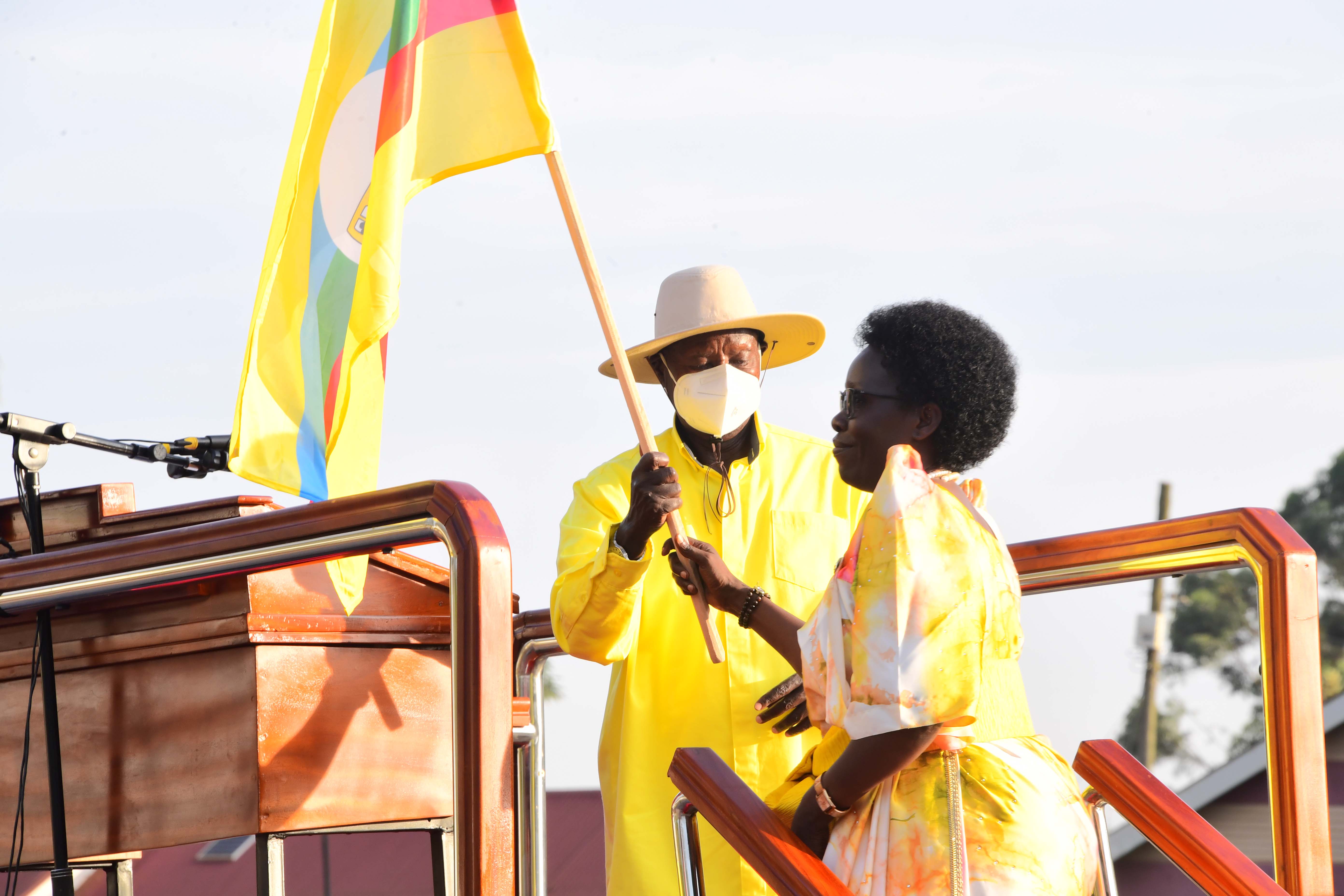
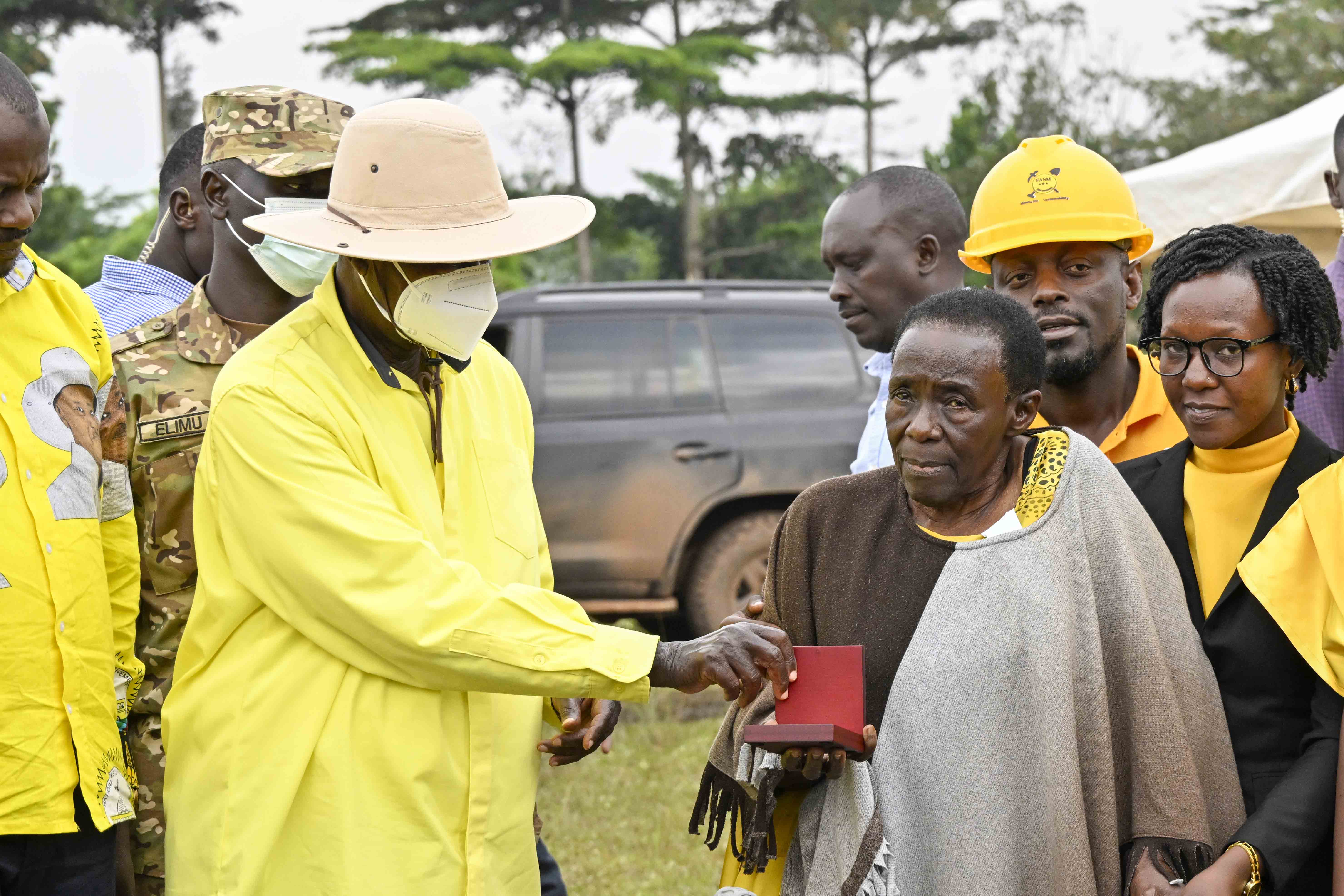
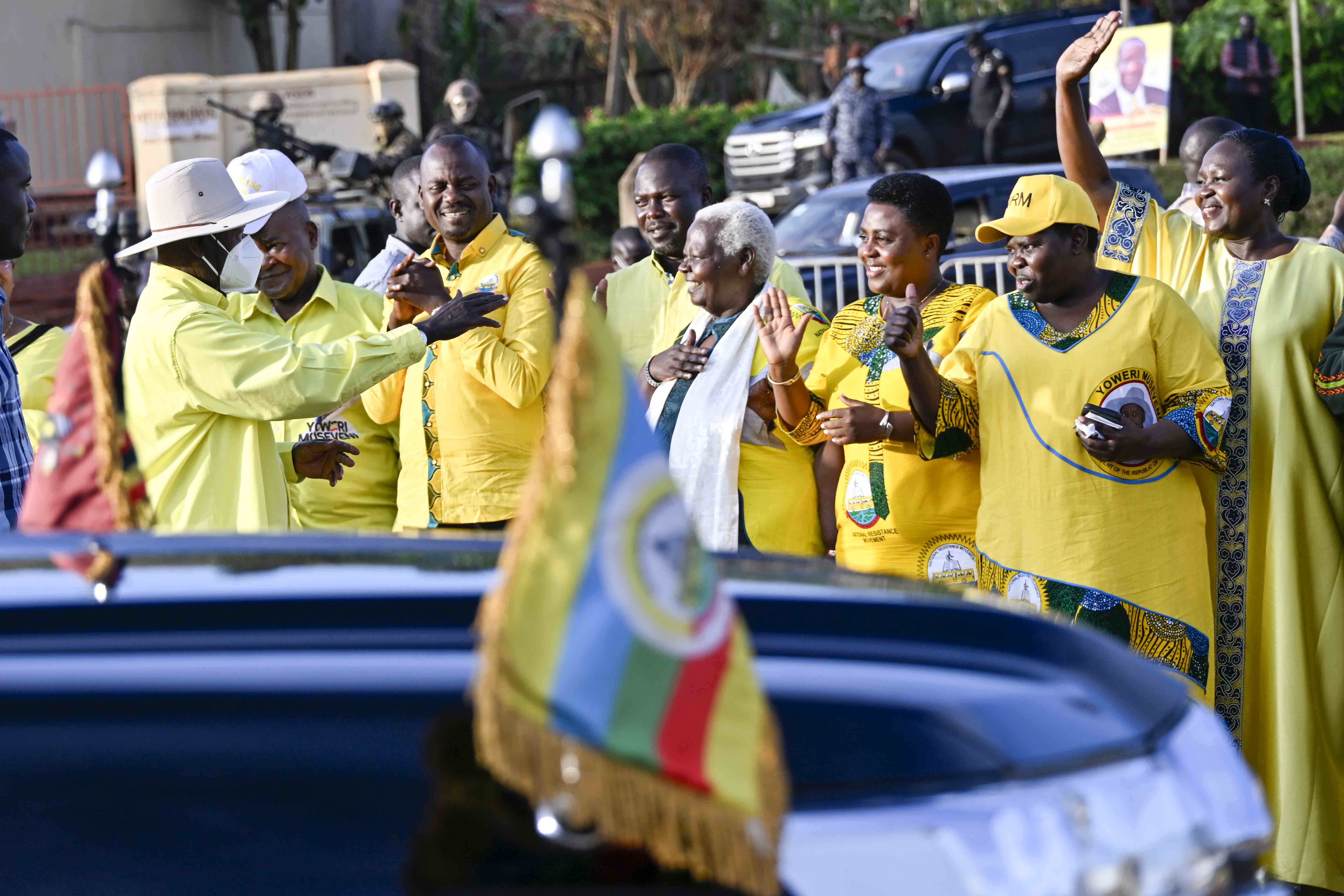
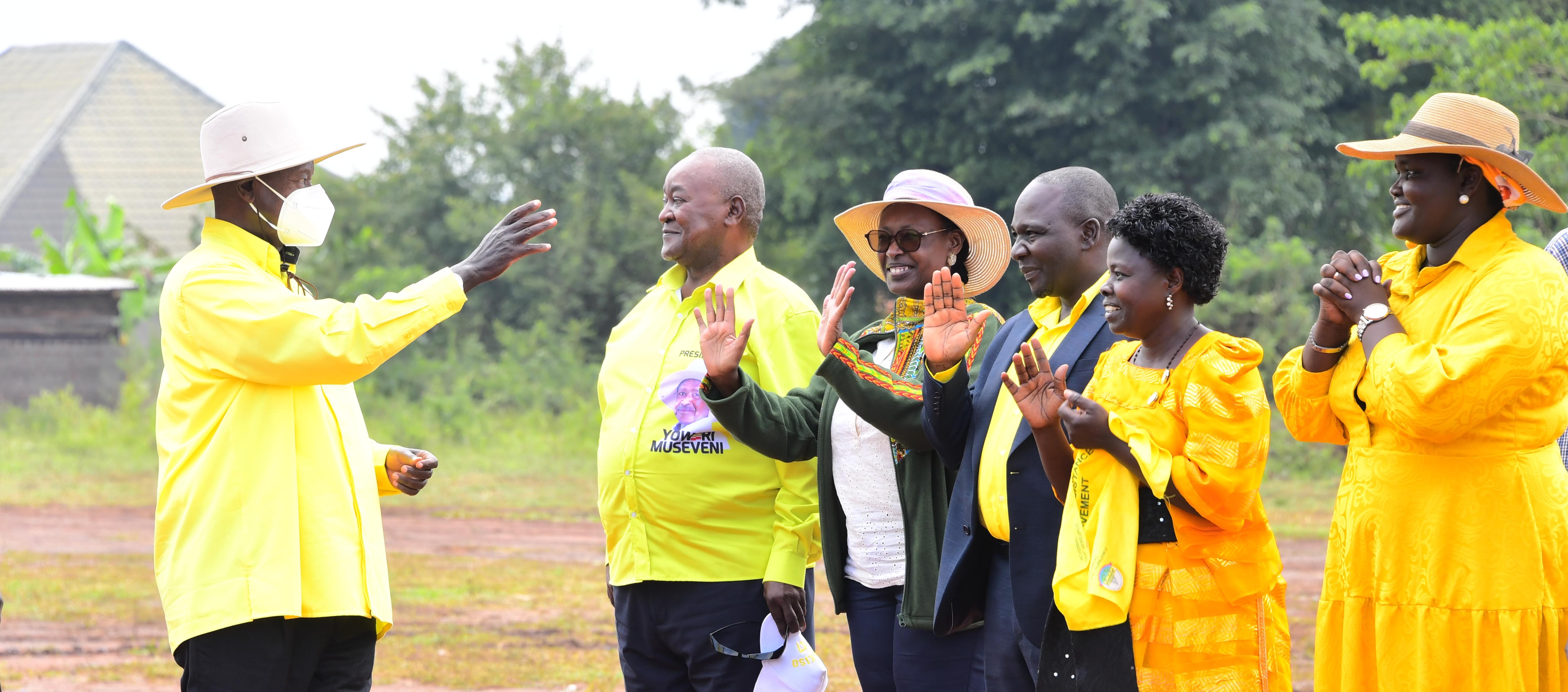

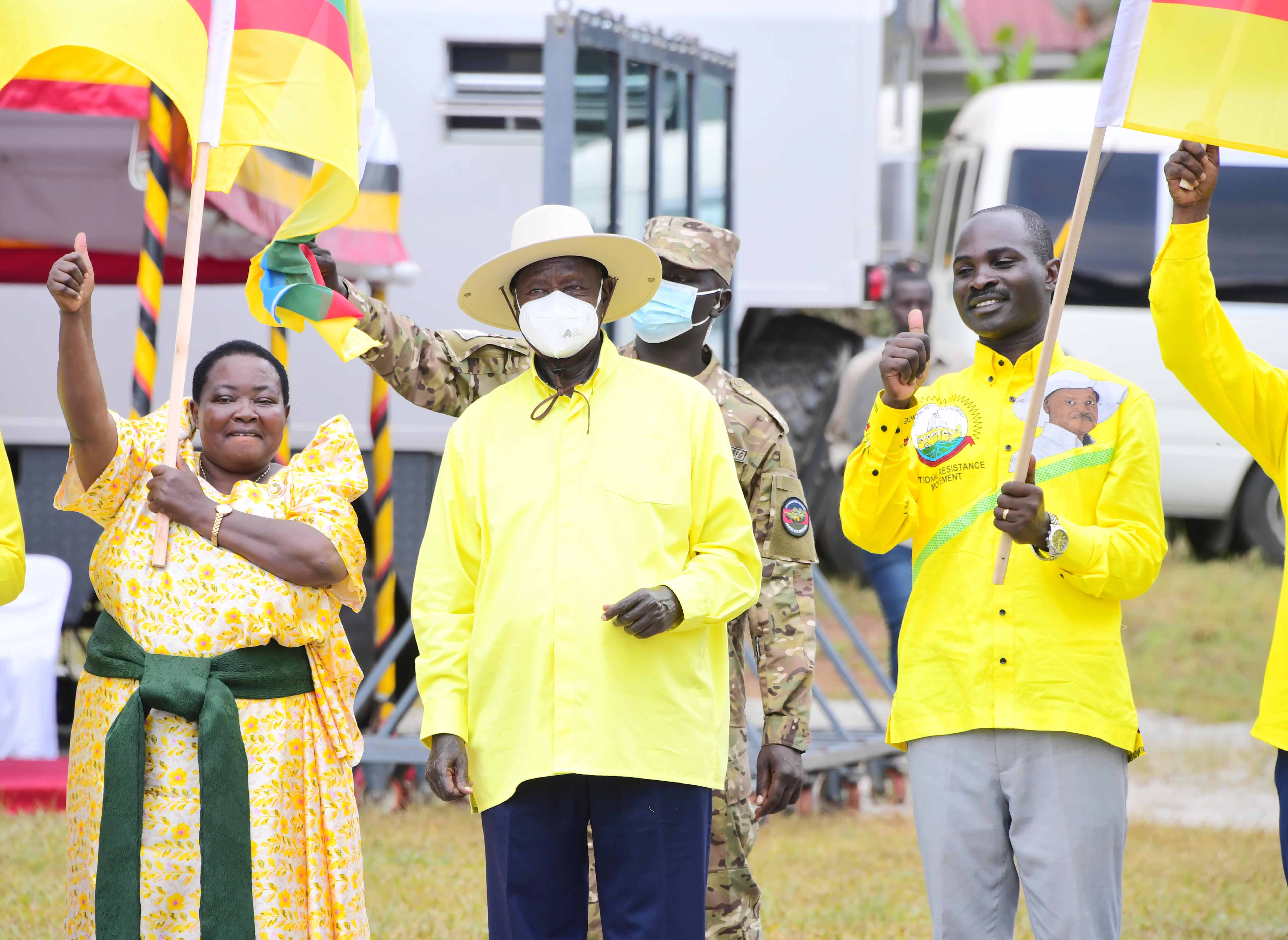
 is deputy Speaker and Hon Minsa Kabanda (2nd R). P.jpg)
 shares a light moment with Mr Farid Belbouab (R) from the Sharjah Chamber of Commerce and Industry after a meeting at Nakasero on Sunday. PPU Photo.jpg)
